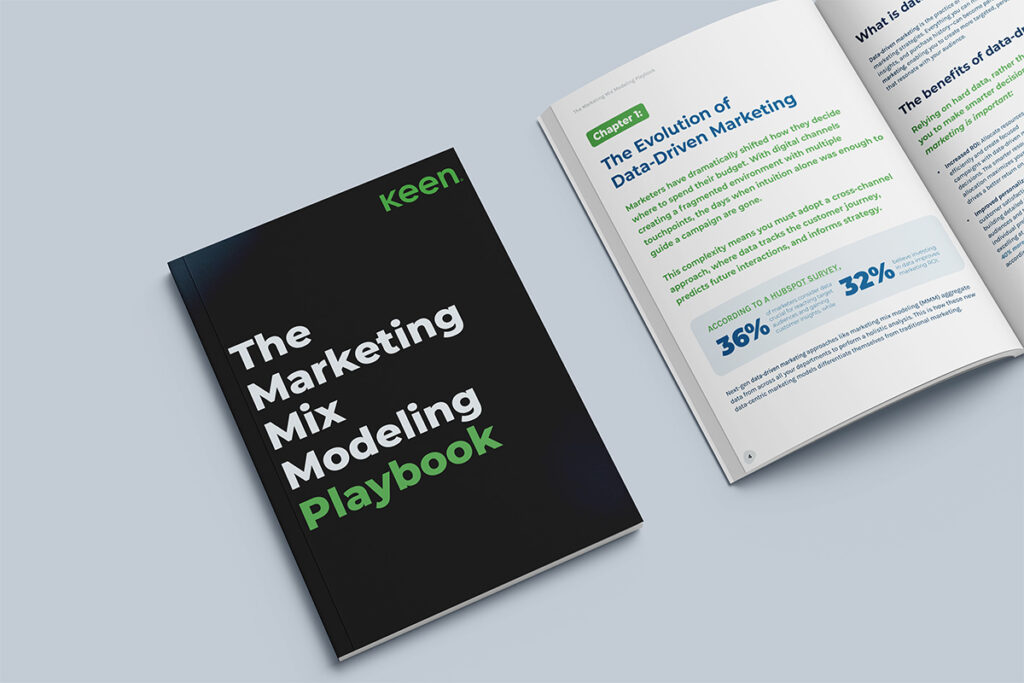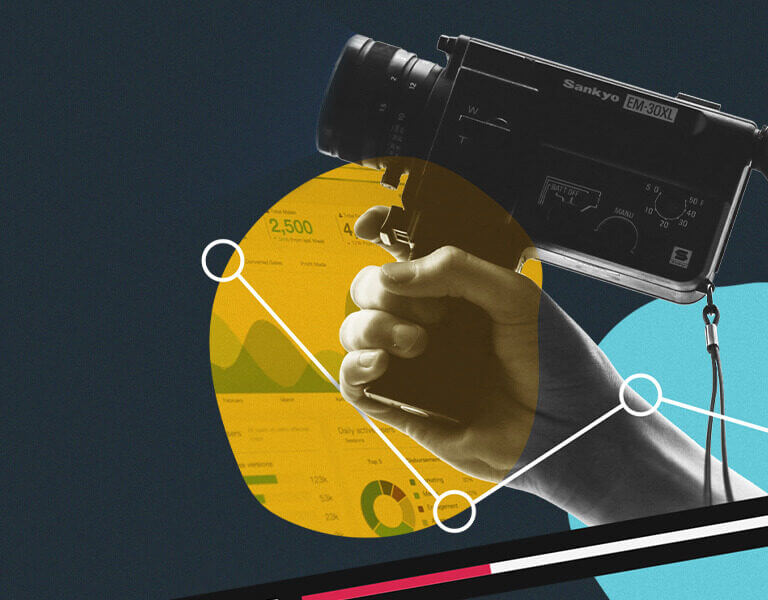A strong brand equity can make all the difference when it comes to being successful in business. Having a well-established presence in the marketplace often means you can charge a premium price for your products or services, build customer loyalty, and make it more difficult for competitors to attract the same base.
Consumer perceptions of the products of well-known brand names are better than those of lesser-known ones. But what constitutes a strong brand image? This is where brand equity comes into play.
Key takeaways:
- Strong brand equity helps you command premium pricing, expand into new markets more easily, and build customer trust and loyalty, even in challenging economic climates.
- Successful brands optimize their marketing strategies by leveraging data, AI, and predictive analytics.
What is brand equity in marketing?
Brand equity in marketing is the added commercial and social value that a product or service with a certain brand name has over the same product or service without the name. Simply, it’s the commercial value your brand name brings to the table, beyond just the product itself.
Your brand equity measure also shows how aware people are of your brand, how they perceive it, and how likely they are to trust and choose it. You can influence your brand equity by factors such as:
- Brand reputation
- Customer loyalty
- Advertising
Learn how to measure brand equity.
Positive vs. negative brand equity examples
Brand equity can work for you or against you, depending on your type of influence. Here are some brand equity examples to determine if yours is positive or negative:
| Positive brand equity example | Negative brand equity example |
| Customers trust your product and expect quality | Customers doubt your product or expect poor quality |
| You can charge premium prices without pushback | You compete mostly on discounts or price cuts |
| Easier market expansion; new products get faster adoption | Harder to launch new products; skepticism slows adoption |
| Lower acquisition costs (brand familiarity drives conversions) | Higher acquisition costs (people need extra convincing) |
| Customers advocate for your brand organically | Negative reviews or word-of-mouth hurt future sales |
What is the importance of brand equity?
Brand equity provides a valuable competitive edge and long-term benefits despite requiring committed building efforts.
A company with strong brand equity is able to:
- Expand into new markets more easily: Brand recognition lowers the cost and risk of entering new regions, customer segments, or launching new products, helping you with household penetration.
- Create new revenue streams: Strong brands can license their name, form partnerships, or create brand extensions to generate extra income.
- Improve profitability: Customers are willing to pay more for trusted brands, giving you higher margins and less reliance on discounting.
- Lower acquisition costs: Drive more organic traffic, word-of-mouth, and higher conversion rates across your cross-channel marketing efforts.
6 factors to create a strong brand value
Building a high brand equity requires a long-term, strategic approach that focuses on creating positive associations and experiences for customers. These six areas form the foundation of strong brand equity:
- Clear brand positioning: Define your value proposition and make it easy for your target audience to understand your UVP.
- High product or service quality: Provide superior products or services and use consistent branding across all touchpoints.
- Valuable customer service: Deliver excellent customer service and gather feedback to continually improve the brand.
- Emotional customer connection: Connect with customers (via social media or other mediums) on an emotional level by communicating brand values and story in a way that resonates.
- Successful marketing mix strategy: Execute your marketing strategy through effective cross-channel advertising that builds a positive reputation.
- Unified marketing strategy for consistency: Align tone, visuals, and messaging across every channel for consistent branding.
How to build brand equity: 5-step process
So, now that the importance of brand equity in marketing has been established, how does one go about building it? Brand equity is neither created overnight nor by accident. It’s the result of consistent effort across your product, marketing, and customer experience.
Use the following 5-step process to build a positive brand equity:
- Continue brand engagement: Stay visible to maintain brand awareness. Regular, relevant communication keeps your brand at the top of the minds of your customers. Keep marketing through downturns, adjusting your messaging for the moment.
- Strengthen customer loyalty: Build consumer trust with consistent messaging. Loyal customers are more likely to stick with you during tough times.
- Adapt messaging: Adjust your messaging to address customer needs and concerns. Offer value that aligns with their current situation.
- Invest in long-term strategies: Focus on building sustainable brand equity through customer-centric content, innovation, and community involvement.
- Measure and refine: Track results and use data to improve strategies, ensuring a continuous connection with customers.
Consistency and strategic adjustments help keep your brand strong, even in uncertain times.
How to protect brand equity during a recession
Because it’s impossible to accurately predict how long a recessionary type environment could last, it’s crucial for you to maintain your marketing campaigns and efforts to maximize your brand equity. But while consistency is essential during a recession, it’s equally important for you to be strategic. Pulling back on certain investments means potentially ceding strategic leadership by driving the category to other competitors.
Instead of going “dark” during a recession, consider alternative cost-saving measures, such as:
- Adjust your marketing channel mix: Optimize your marketing channel mix during a recession to invest in the most effective and efficient channels and maintain brand visibility and customer engagement. By reallocating spend to high-performing channels, you can maximize impact, preserve brand equity, and stay top-of-mind without overspending.
- Optimize your marketing spend: If you maintain your spend, investment, and R&D innovation through difficult periods, you’re going to find yourself in a better competitive position when the economy recovers. Use data and marketing technology platforms that offer visibility into interaction effects between channels.
- Focus on the most effective marketing channels: Maintain consistent visibility and strengthen customer relationships, even with tighter budgets by prioritizing channels that deliver the highest impact.
- Leverage artificial intelligence: Advances in machine learning and AI tech have made it possible—and advisable—for marketers to incorporate timing into their marketing mix planning, which can help guide decision making for brands in times of uncertainty.
AI-powered marketing tools speed things up and automate the process of doing more math and breaking analyses down into smaller units. So now, marketers have the ability to optimize their marketing channel mix to maximize the value generated from spend decisions and minimize the risk of veering off course.
Maximize your How Keen can help build brand equity with Keen
Whatever your position is, it’s imperative that you think about the forward trajectory and don’t get mired in the difficulties of the present because not doing so may wind up ceding leadership to someone else. By continuing to market your brand, you can maintain customer engagement and set yourself up for future growth when the economy improves.
With the industry’s first and only decision optimization engine rooted in predictive analytics, Keen’s MMM platform empowers brand leaders to plan, adjust, and report on their brand strategy faster—and with more accuracy—than a traditional marketing mix modeling approach.
Informed by 40 years of academic studies, 10 years of client metadata and recent marketplace dynamics, and thousands of economic elasticity models and priors, our tool equips marketers to quickly start driving both short-term and sustainable value while simultaneously building brand equity.
Interested to learn more about the importance of brand equity in marketing? Request a demo model.





